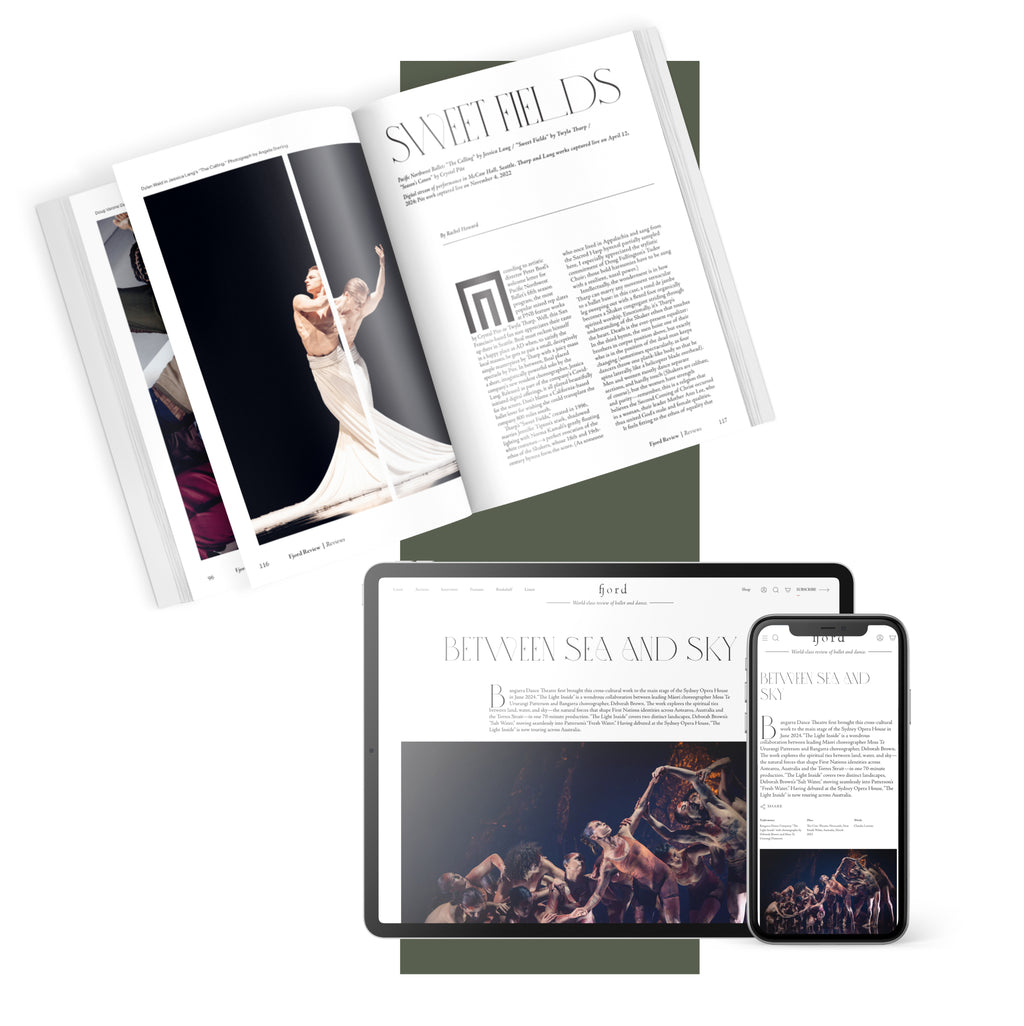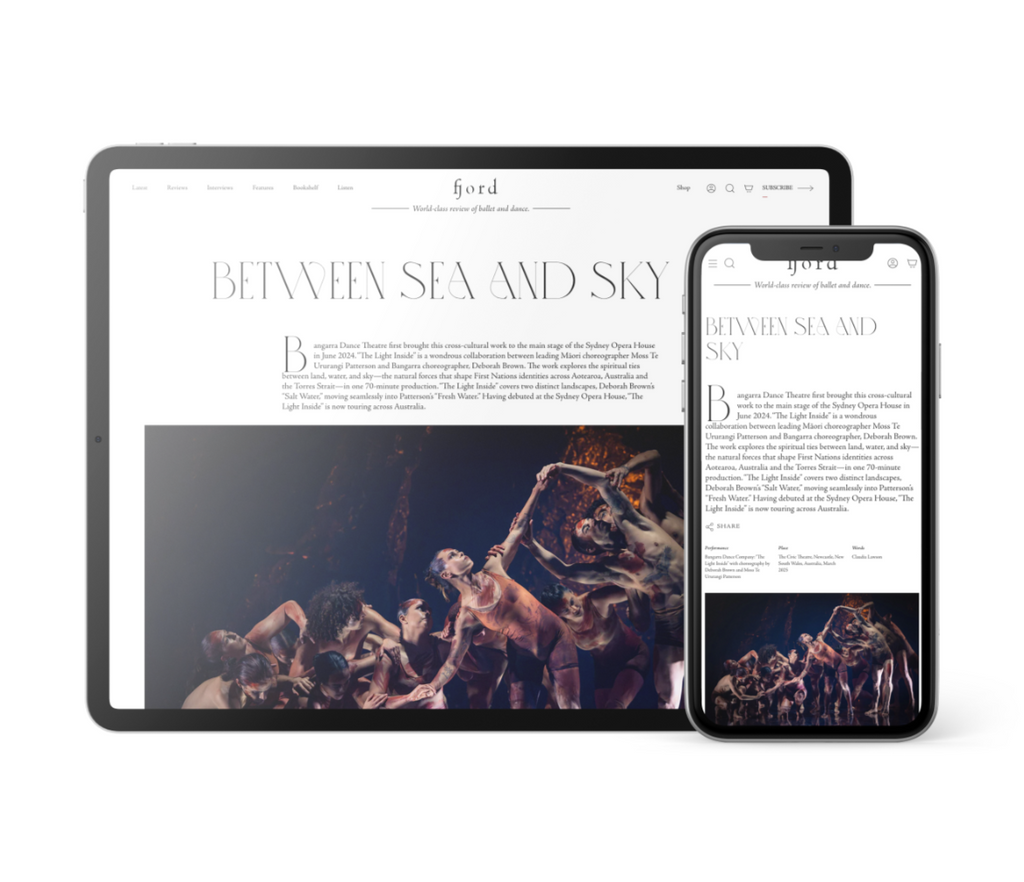Float like a Butterfly
Sans tutu or pointe shoes, New York Ballet principal Sara Mearns delivered a knock-out punch in her 20-minute solo, “Zebra.”
Plus
World-class review of ballet and dance.
We are all of us, beings, in a constant state of continual change. We humans are a composition of oxygen, carbon, and hydrogen. Our bodies are full of other chemical elements too, “heavier elements in lesser quantities, folded into our flesh like gold or rubies hidden in the earth. We are 3.2% nitrogen; 1.5% calcium; 1% phosphorus.” In order of occurrence, we are sulphur for our skin and hair, and sodium for our nerve transmission; we are chlorine, magnesium, and trace elements too. “These elements generally come to us via plants, who find them in the soil. In a very real sense, we are partly made of soil.”[1] At the opening night of Stephanie Lake’s new work, “The Chronicles,” at the Playhouse in Melbourne, presented as part of Rising Festival, we were in and of the soil, and it glittered with rubies.
Performance
Place
Words



“Uncommonly intelligent, substantial coverage.”
Your weekly source for world-class dance reviews, interviews, articles, and more.
Already a paid subscriber? Login

Sans tutu or pointe shoes, New York Ballet principal Sara Mearns delivered a knock-out punch in her 20-minute solo, “Zebra.”
PlusJapan Society’s Yukio Mishima centennial series culminated with “Mishima’s Muse – Noh Theater,” which was actually three programs of traditional noh works that Japanese author Yukio Mishima adapted into modern plays.
PlusThroughout the year, our critics attend hundreds of dance performances, whether onsite, outdoors, or on the proscenium stage, around the world.
PlusOn December 11th, the Alvin Ailey American Dance Theater presented two premieres and two dances that had premiered just a week prior.
Plus
comments